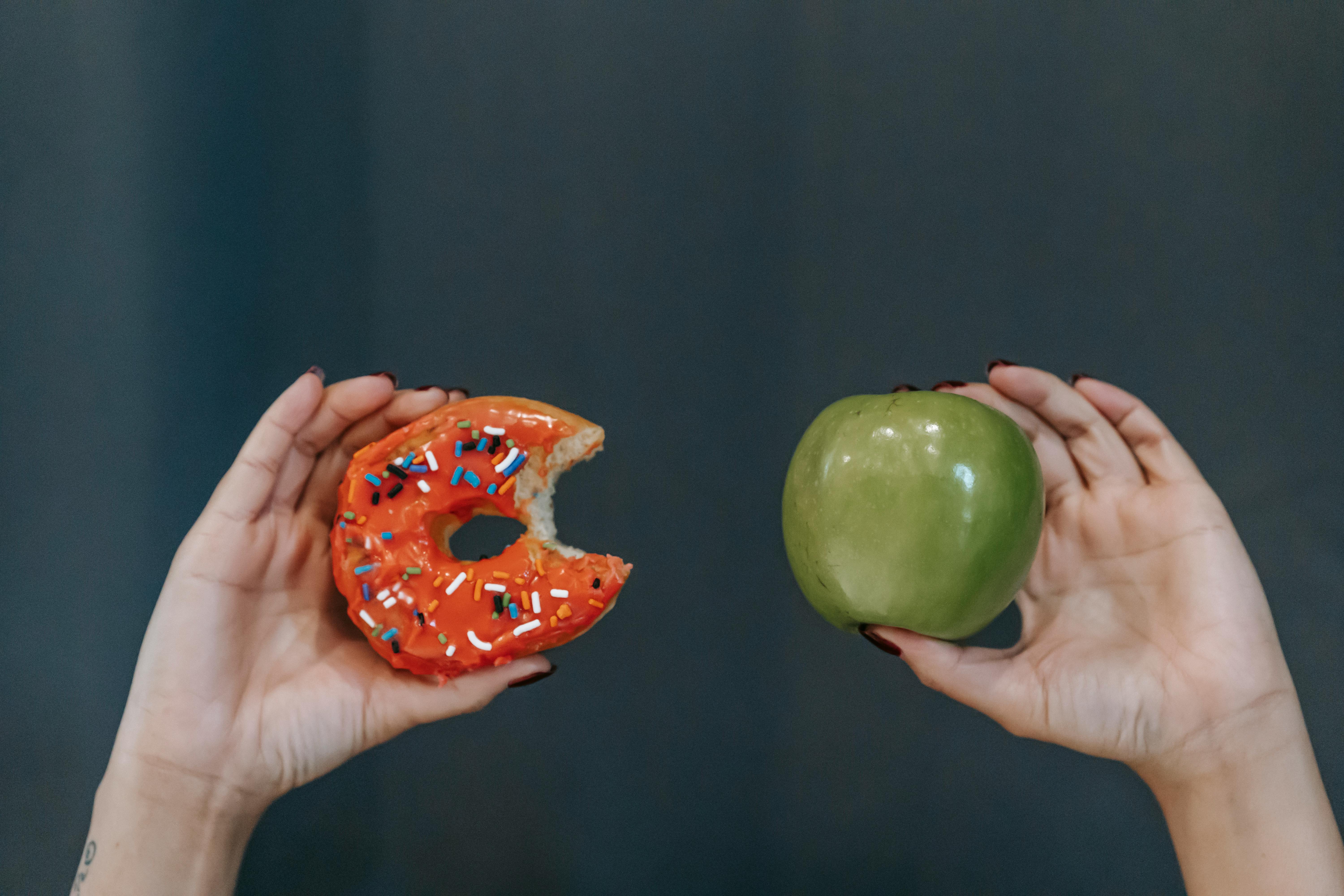Do you ever feel a sharp pain in your teeth when you eat something sweet or sugary? If so, you are not alone. Eating sugar can cause tooth pain for many people due to a variety of reasons. This article will explore why your teeth hurt when you eat sugar and what you can do to reduce the discomfort.Eating sugar can cause teeth pain for several reasons. Firstly, sugar can cause cavities if it is not removed from the teeth quickly enough. This can lead to tooth decay and pain in the affected area. Secondly, sugary foods and drinks can increase the acidity of the mouth which can cause enamel erosion. This can lead to sensitivity and pain when eating sugary foods or drinking sugary beverages. Additionally, consuming too much sugar can contribute to gum disease, which often leads to tenderness and inflammation of the gums, resulting in pain when eating sweets.
How Does Eating Sugar Affect Teeth?
Eating too much sugar can have a negative effect on your teeth. Sugar provides fuel for the bacteria that live in your mouth, and when they feed on it, they produce acids that wear away the enamel on your teeth. Over time, this can lead to cavities and other dental problems such as gum disease. The more sugar you eat, the more likely you are to develop these problems. It’s also important to note that certain kinds of sugar are worse for your teeth than others. For example, sticky sugars such as candy and dried fruit tend to stay on your teeth longer and cause more damage than other types of sugar.
It’s important to brush and floss regularly to keep your teeth healthy when eating sugary foods. It’s also important to drink plenty of water after eating sugary foods or drinking sugary drinks in order to reduce the amount of sugar left in your mouth. Finally, be sure to visit your dentist regularly so that any dental problems caused by eating too much sugar can be addressed early on before they become worse.
What Are the Dental Health Risks of Eating Too Much Sugar?
Eating too much sugar can have a negative effect on your dental health. Consuming large amounts of sugar on a regular basis can lead to an increase in tooth decay, cavities, and other dental problems. The bacteria in your mouth feed on the sugar and create an acid that wears away at the enamel of your teeth. This can lead to tooth sensitivity, discoloration, and even cavities. In addition, sugar increases the risk of gum disease by promoting the growth of bacteria that cause inflammation.
It is important to practice good oral hygiene when consuming sugary foods and drinks. Brush your teeth twice a day and floss once a day to help remove plaque buildup from between your teeth. Drinking plenty of water throughout the day can also help flush out bacteria that can cause decay. Finally, limit your intake of sugary foods and drinks as much as possible to reduce your risk of dental health problems caused by too much sugar.
Is Eating Too Much Sugar Bad for Your Teeth?
Eating too much sugar can have a detrimental effect on your teeth. Consuming large amounts of sugar causes tooth decay and cavities, which can lead to pain and discomfort. When you eat sugary foods, the bacteria in your mouth feed on the sugar and produce acids that eat away at your enamel. Over time, this can cause your teeth to become weak and more prone to decay. Additionally, sugary snacks often stick to your teeth, which can further increase the risk of cavities.
To keep your teeth healthy, it is important to limit the amount of sugar you consume on a daily basis. Try to avoid sugary snack foods such as candy, cookies, and cakes whenever possible. If you do indulge in sugary treats every now and then, be sure to brush or floss regularly afterwards so that the sugar is not left lingering in your mouth. Eating a balanced diet with plenty of fruits and vegetables is also important for keeping your teeth strong and healthy.
Does Eating Sugar Cause Cavities?
Yes, eating too much sugar can increase your risk of developing cavities. When sugary foods are consumed, the bacteria in your mouth feed off of the sugar and produce acid, which can erode tooth enamel and lead to cavities. Eating sugary snacks between meals is particularly harmful because it increases the amount of time that your teeth are exposed to the acid.
In addition to sugar, other types of carbohydrates can also contribute to cavities. Starchy foods such as bread and pasta break down into simple sugars in the mouth, which feed the bacteria and create acid. Therefore, it is important to limit your intake of all types of carbohydrates if you want to reduce your risk of developing cavities.
It is important to note that having an occasional sugary snack or meal is not necessarily bad for your teeth. Eating a balanced diet with plenty of fruits and vegetables will help reduce your risk of developing cavities by providing essential vitamins and minerals that strengthen tooth enamel. Additionally, brushing twice a day with fluoride toothpaste and flossing regularly will help remove plaque buildup on teeth and reduce your risk of developing cavities.

What Happens When You Consume Too Much Sugar?
Consuming too much sugar can have a serious impact on your health. While small amounts of sugar can be beneficial, consuming large amounts of added sugar can lead to a range of health issues, including weight gain, tooth decay, increased risk of diabetes and heart disease, and even depression.
Weight Gain: Consuming too much sugar can lead to weight gain due to the calories in sugary foods and drinks. Sugar is calorie-dense and easy to overeat. Eating too many sugary snacks or drinking too many sugary drinks leads to excess calorie intake and can cause you to gain weight.
Tooth Decay: Eating foods and drinking beverages that are high in sugar increases the risk of tooth decay due to the acids produced by bacteria in your mouth when they come into contact with sugary foods and drinks. Over time, these acids can weaken your tooth enamel, leading to cavities and other dental problems.
Increased Risk of Diabetes & Heart Disease: Consuming too much added sugar increases your risk for developing type 2 diabetes as well as heart disease. Eating a diet high in added sugars has been linked to an increased risk for insulin resistance, which is a precursor for type 2 diabetes. Additionally, a diet high in added sugars has been linked to an increased risk for developing heart disease due to its impact on cholesterol levels.
Depression: Studies have shown that eating diets high in added sugars can increase the risk of depression as well as other mental health issues such as anxiety and stress. This may be due to the fact that consuming large amounts of sugar-laden foods can lead to spikes in blood sugar levels, followed by crashes which can affect moods negatively.
Protecting Your Teeth from Sugar
Eating sugar can have a negative impact on your teeth, leading to cavities, discoloration, and other issues. In order to protect your teeth from the effects of sugar, it is important to practice good oral hygiene. This includes brushing your teeth twice a day with a fluoride toothpaste, flossing daily, and visiting your dentist for regular checkups and cleanings. Additionally, you can limit your consumption of sugary foods and drinks to help reduce the amount of sugar that comes in contact with your teeth.
When eating sugary foods, it is important to take the time to thoroughly brush and floss afterwards. If brushing isn’t an option, swishing water around in your mouth can help remove some of the sugary residue from your teeth. Additionally, chewing sugarless gum can help increase saliva production in order to neutralize the acid produced by bacteria that feeds on sugars found in food and beverages.
It is also beneficial to rinse with an antimicrobial mouthwash after eating sugary foods or drinking sugary drinks. This helps reduce plaque buildup and fights off harmful bacteria that can lead to tooth decay. Additionally, drinking plenty of water throughout the day helps rinse away food particles from your mouth as well as diluting any remaining sugars in order to reduce their effects on tooth enamel.
By following these simple tips, you can help protect your teeth from the negative effects of eating sugar. Taking care of your oral health now will help ensure a healthy smile for years to come!
What Should I Do If My Teeth Hurt After Eating Sugary Foods?
If your teeth start to hurt after eating sugary foods, you should take action to prevent further damage. The first step is to brush your teeth with a fluoride toothpaste. This will help remove any remaining sugar from the surfaces of your teeth and prevent bacteria from growing. You should also floss between your teeth, which can help remove plaque and food particles that can cause cavities.
You should also consider avoiding sugary foods in the future as well as cutting back on other acidic foods such as citrus fruits and carbonated drinks. Sugary and acidic foods can break down the enamel on your teeth, leading to further pain and sensitivity. You may also want to try chewing sugar-free gum after eating, which helps increase saliva production and wash away any lingering particles of food.
If you experience intense pain or sensitivity after eating sugary foods, it’s best to see a dentist for professional advice. Your dentist can assess whether there is a cavity present or if any other treatments are necessary. They may even recommend an in-office fluoride treatment or a special type of toothpaste that can help protect your enamel from further damage.
Taking care of your teeth is important if you want to avoid pain and discomfort caused by sugary foods. By brushing regularly with fluoride toothpaste, flossing daily, avoiding acidic or sugary snacks, and visiting the dentist when necessary, you can protect your teeth from further damage caused by sugar-laden foods.

Conclusion
Sugar can cause tooth decay and pain in your teeth when consumed excessively. While sugar is an important part of a healthy diet, it should be consumed in moderation and with the proper dental hygiene habits. If your teeth hurt after consuming sugar, make sure to brush your teeth to remove the food particles that cause the pain. It is also important to visit the dentist regularly for professional checkups and cleanings. With proper care, you can enjoy sweet treats without worrying about painful consequences.
In conclusion, eating too much sugar can lead to tooth decay and toothache. To prevent this, it is important to maintain proper dental hygiene habits such as brushing twice a day and visiting the dentist regularly. Eating sugar in moderation can also help reduce the chances of experiencing any pain after consuming sweet treats.
